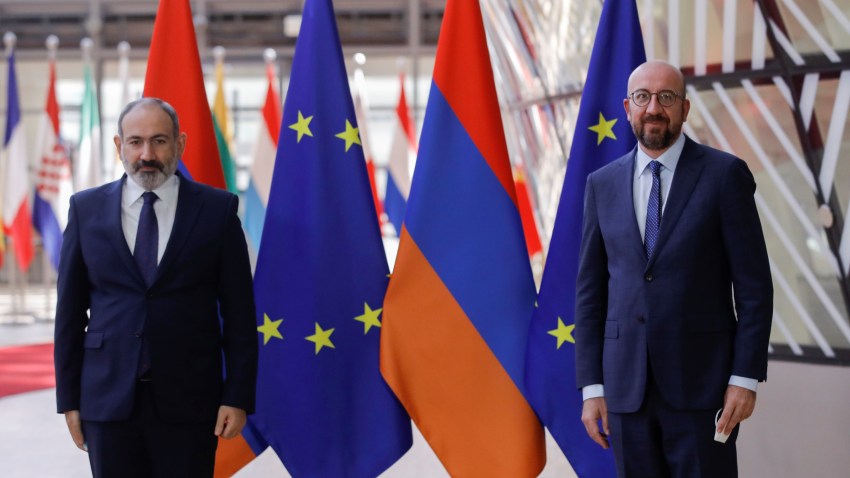Azerbaijan’s military offensive in Nagorno-Karabakh in September cemented Baku’s control over the breakaway region, three decades after it gained autonomy under Armenia’s protection amid the breakup of the Soviet Union. The two-day operation, which followed Azerbaijan’s victory in the 2020 war with Armenia over the territory, decisively settled Nagorno-Karabakh’s status, while triggering the mass emigration of its ethnic Armenian population.
But as the dust settles, the attack’s ripple effects are reverberating far beyond Nagorno-Karabakh itself. Russia’s decision to stand aside and allow Azerbaijan to conduct its final invasion, despite its peacekeeping role as part of the cease-fire deal that ended the fighting in 2020, has sparked a profound sense of betrayal in Yerevan. That in turn has created an opportunity for the European Union to forge stronger ties with Armenia and reshape the geopolitical orientation of the South Caucasus.
Armenia has diverged from many other post-Soviet countries—such as the Baltic states, Ukraine and Georgia—by maintaining deep ties with Russia rather than seeking to integrate with the EU. As a formal Russian ally under the Moscow-led Collective Security Treaty Organization, or CSTO, Yerevan has long counted on Moscow to guarantee its security. Their robust defense ties include discounted purchases of Russian arms as well as a Russian military base in Gyumri, Armenia’s second-largest city.

